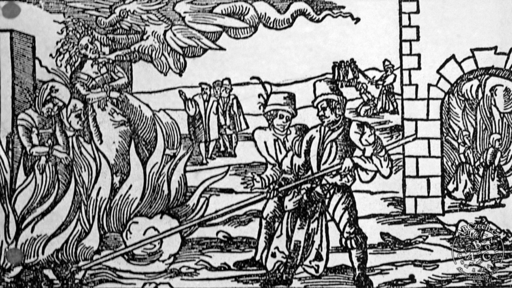
Abbreviation for “plus a kitchen corner”, denoting that the kitchen in the flat is located in a habitable room, rather than separately.

Ways of shortening long or complex names. Abbreviations enrich vocabulary, but when they are used in Czech sentences, they need to be classified as parts of speech and rules of inflection need to be applied.

Prominent organiser of Czech literary and cultural life. The production of the Veleslavín press represents one of the pinnacles of Czech humanistic typography.

Fermented alcoholic beverage flavoured with hops. Its production, careful preservation and tapping have become a part of Czech beer culture.

Colloquial expressions borrowed from German or from other languages via German. Compared to their Czech synonyms, they are often expressive in character (flaška, furt, ksicht vs láhev, pořád, obličej).

Traditional rhymes used for randomly selecting a player from a group of two or more.

Closeness between languages and nations allows for smooth communication on the basis of mutual intelligibility. Although mutual intelligibility between Czech and Slovak is not as great as during the era of Czechoslovakia (1918–1992), Slovak has a special status in the Czech Republic.

Names that parents give their infants by entering their names into the birth records. In the Czech Republic it is customary to have only one. The names are typically in the calendar and almost every day someone has a name day. Another Czech characteristic is the large number of pet names used instead of the most common Czech names.

An expression referring to the Czech people as a nation of skilful handymen who like to make and repair many things themselves, instead of buying new one.

Original Czech names of the months, which unlike most European languages are not derived from Latin. The Czech names are symbolic and based on natural phenomena typical of the given period, although the symbolism is not always clear to the speaker.

Czech spelling based on Jan Hus’s reform. It features letter with diacritical marks, some which (ě, ů and ř) are used only in Czech. The letter ř represents one of the most difficult sounds in the world.

Mandatory since the 18th century and inherited from father. Czech surnames have different origins and female surnames typically have the suffix -ová. The most frequent surnames in the Czech Republic include Novák, Svoboda, Novotný and Dvořák.

A phrase from a joke about low-quality Moravian wine intended for Prague. It is used for assessing something that may not be ideal, but is still pleasant.

A term denoting the period between 1620 and 1781 marked by a lack of religious freedoms. It can also mean other periods of oppression and lack of freedom.

A popular character in Czech fairy tales, with horns, a tail and a hoof, also often appearing in human form. Devils live in hell and try to obtain human souls. The tradition involving the devil, Saint Nicholas and the angel is still alive.

A favourite device in the Czech language, expressing a smaller size of an object (krabička), an emotional relationship towards the object (maminka), or having a new, independent meaning (chlebíček).
2016-2020 ABCzech.cz - © Filozofická fakulta Univerzity Karlovy
Content from this website may be used without permission only for personal and non-commercial purposes and with the source cited. Any other use is allowed only with the authors' consent.
This web application Sonic.cgi meets GDPR requirements. Current information can be found here.